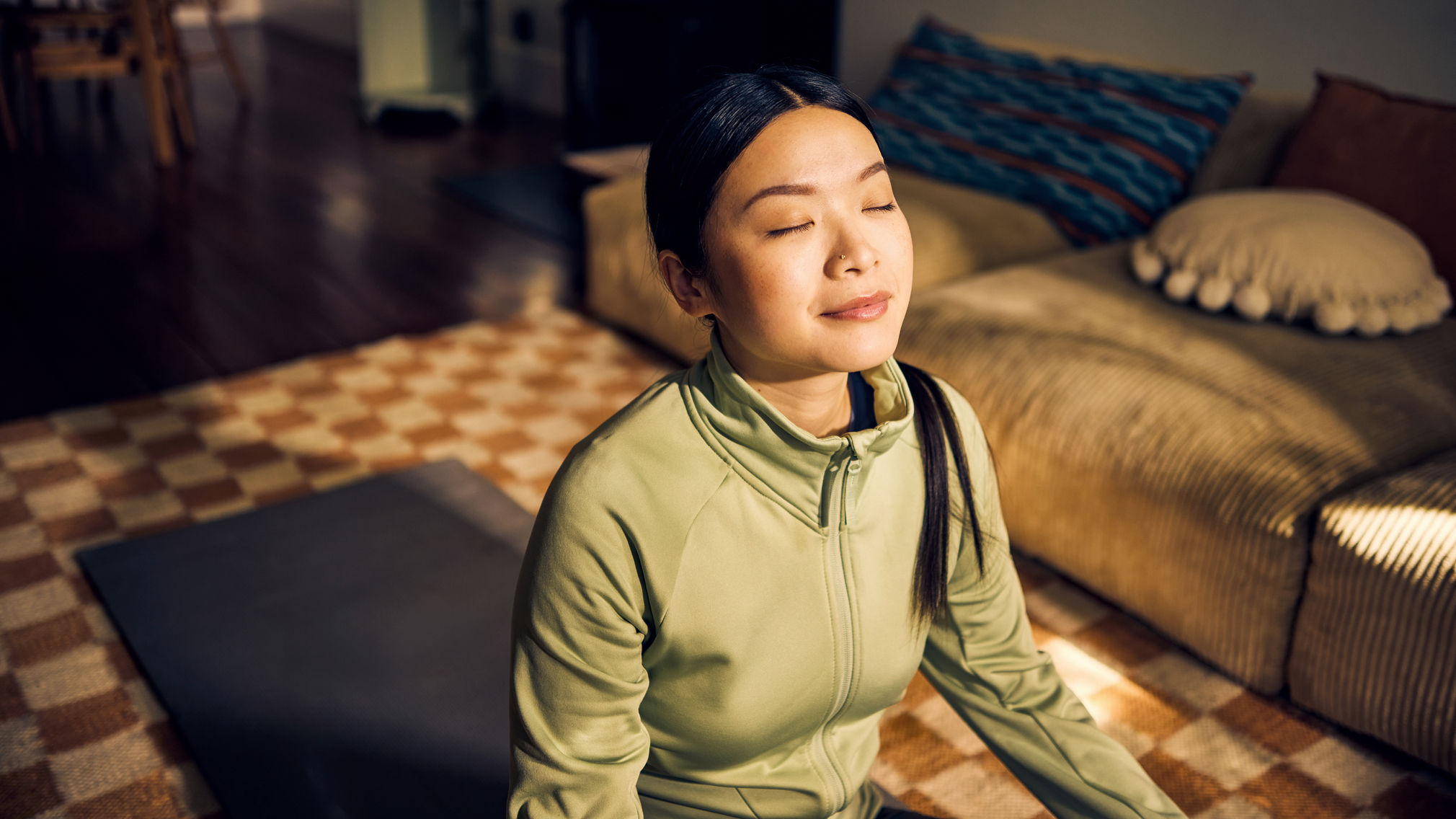12 Health and Wellness Upgrades That Make Your Home Better
Set yourself up for success and give your living space a refresh.


Written by May Ortega on May 15, 2025
Being home should mean you feel relaxed, safe, and rejuvenated, especially if you work from home or you’re a stay-at-home parent. There are many ways you can upgrade your home to put an emphasis on your own health and wellness. Here are a few tips to get you started.
1. Add gym equipment
Hitting the gym can be an integral part of your daily routine, and having access to one at home can make heading to the gym — and committing to going often — that much easier. And you don’t have to have a huge space to make the magic happen.
A well-dedicated corner and some strategic equipment (like a few free weights or a weighted jump rope) can be perfect for small spaces. Have more room to sweat it out at home? You can opt for bulkier equipment like the tried-and-true treadmill, heavy-duty gym mats, a stationary bike, a rowing machine, or weight lifting equipment.
2. Add a meditation zone
Creating a nice, quiet spot to meditate in your home is a nice feature to have. To create a personal meditation zone, seek out a peaceful space in your home — whether that’s a sunroom, a patio, the corner of your bedroom or even a walk-in closet — and gather or purchase items that help calm you. Consider a tray of candles, a bundle of soft pillows or an area rug, perhaps.
When it comes to the décor, opt for muted or neutral colors for the fabrics, paint and accessories in the room, which will lend to the tranquil vibe you’re trying to create and curate. Use this special space to do yoga, listen to a meditation podcast or simply enjoy some peace and quiet for a few moments.
3. Incorporate soothing colors
The colors you choose for your walls may seem inconsequential, but they can really change the entire mood and energy of your home. Paint color can go a long way in helping you create a serene space.
Soothing colors like periwinkle blue, sage gray, a soft white or a muted green are perfect for rooms in the home that are intended for calming down and resting, such as a bedroom, bathroom or sunroom. A bonus? Certain paint colors can even help you sell your home for a slightly increased percentage.
4. Decorate according to feng shui
Feng shui is an ancient Chinese philosophy that can help create a harmonious environment that will support your wellbeing. This practice focuses on the way you arrange your home to promote the flow of positive energy, or "chi." There are many ways to follow feng shui, from avoiding furniture that’s too big for your space, to incorporating various elements of nature into your space like water, fire, wood, and metal. The goal is to make your home feel safer, more relaxed, and balanced.
5. Add an air purifier
Adding an air purifier to your home can have you breathing easier — literally. Air purifiers are designed to remove contaminants from the air, such as dust, pollen, and pet dander. By filtering out these irritants, air purifiers can significantly improve the air quality in your home, reducing the risk of respiratory issues over time. This can lead to fewer allergy symptoms, better sleep, and a more comfortable living environment.
6. Decorate with houseplants
If you’d prefer a more natural route to cleaner air, some plants are natural air purifiers, capable of filtering out toxins and improving indoor air quality. According to NASA's Clean Air Study, certain plants like the spider plant, snake plant, and peace lily are particularly effective at removing common household pollutants. By placing these plants in your home, you can create a cleaner, more refreshing environment that supports your respiratory health.
Beyond their air-purifying benefits, plants can also have a calming effect on your mental health. The presence of plants can make your home feel more serene and inviting. Here’s a list of beginner-friendly plants you can try.
7. Create an outdoor haven
Spending time in nature can help you sleep better and lower your blood pressure, according to the Harvard School of Public Health. A well-designed outdoor area can provide a peaceful space where you can unwind, meditate, or simply enjoy some fresh air. Consider adding comfortable seating like a hammock, some lounge chairs, or an outdoor sofa.
To make your outdoor space even more inviting, incorporate elements that appeal to the senses. Planting a variety of flowers and herbs can fill the air with pleasant scents. Adding a small water fountain or birdbath can provide a soothing background sound (and it could help mask the sounds of traffic). Soft lighting, like string lights or solar-powered lanterns, can help you hang out there day and night.
8. Install smart lighting
Your lighting can really affect how relaxed you feel at home. Smart light bulbs offer the flexibility to adjust the brightness, color temperature, and even schedules of your home’s lighting. For example, you can set the lights to a warm, soft glow in the evening to promote relaxation and better sleep, or switch to a bright, cool white light in the morning to help you focus on work. You can also set these lights on a schedule where they begin to dim at a certain time — or turn off altogether — to help you wind down. Smart lights can also be programmed to mimic natural daylight cycles, which can help regulate your circadian rhythm.
9. Use a water filter
Water filters and purifiers are designed to remove things like bacteria, chlorine, and even lead from your tap water. This can lead to better hydration, which is essential for keeping yourself in tiptop shape. Also, using a water filter can reduce the need for bottled water, which is not only more expensive, but also contributes to plastic waste. By installing a water filter or purifier, you can enjoy fresh, clean water right from your tap.
10. Add smart cleaning technology
Smart cleaning technology helps make your home feel like a fresh, healthy and calming environment where you’ll enjoy spending time. Small changes, like making disinfecting a bigger priority at home, will bring you some peace of mind and make your day-to-day lifestyle more calm. Beyond scrubbing and disinfecting surfaces the old-fashioned way, there are multiple high-tech options that you can add to your home, such as touchless appliances — everything from light fixtures to kitchen faucets — and even self-cleaning toilets that clean with every flush (and deep clean with the push of a button).
11. Declutter your home
A cluttered environment can lead to increased stress, and it could even affect your mental clarity. When your living space is tidy, you feel calmer. Clutter can also make it harder to clean since there are so many things to work around. And that could cause buildup of dust and allergens. We’ve got advice on how to clean up your space, including figuring out what to keep, and how to create a plan to make the process smooth for you.
12. Let some natural light in
Natural light not only brightens your living space and makes it look more appealing, but studies show it can also boost your mood and regulate your sleeping cycle. To maximize natural light, you could buy some sheer curtains, or blinds that can be easily opened to allow sunlight to stream in. Mirrors can also be strategically placed to reflect light deeper into your rooms. Additionally, keeping your windows clean and clear of any blockages, like large decor, can help you let as much light as possible into your home.
